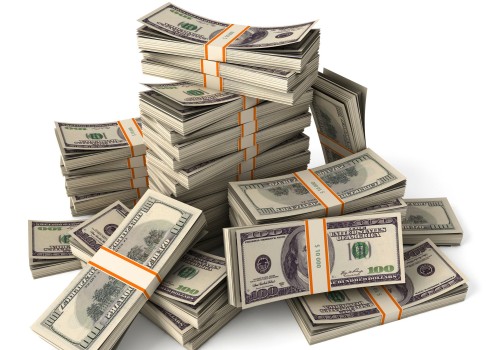Hopefully, if you’ve been following along with our earlier budgeting tips, you’ve got yourself into a healthy financial situation. By now you’ve probably started tracking your income and expenses, are spending within your means, avoided debt by saving up to make big purchases, and paid off your debts.
Once you’ve done all of that you’ve hopefully found yourself in a position where you are making more money than you are spending and don’t have any high-interest debts weighing down your budget. In this case what should you do with the cash accumulating in your bank account?
There are a few things to consider and these are my recommendations which I suggest doing in the order listed here.
- Save up an emergency fund in a high interest savings account. The first and most important step when you’re making more money than you’re spending is to put some aside for emergencies. You never know when you might get injured or sick, when you might need to repair your vehicle or when you might find yourself unemployed. When these moments hit it’s important to have some savings ready to handle the situation.
Emergencies can strike at any time and without warning which is why it’s important to put emergency savings someplace stable and where you can get them quickly. This is why I recommend a high interest savings account (HISA) and not a volatile environment such as investments or a locked-in account such as a guaranteed investment certificate (GIC). A savings account is stable, it should generate a small amount of interest to help you keep up with inflation, and you will be able to access your funds quickly when they are needed.
It’s usually a good idea to have about three month’s worth of money in your savings account. In other words, if you need $4,000 per month to cover your expenses, try to keep $12,000 or more in your emergency fund.
- Short term investments. Once you have an emergency fund stocked and waiting, you might want to consider what to do with money you’re going to want in the near future. Do you have any upcoming plans that will require larger sums of money, but you don’t need the money right now?
If you are planning to buy a house, a car, a vacation, or other large purchase in the next two to five years, I recommend looking at putting the money you’re saving into a low-risk investment. Something like GICs or a term deposit. These options will be stable and grow slowly.
Usually term deposits and GICs are locked-in, meaning you can’t get your money back until a set period of time (typically one to five years) has gone by. This makes these sorts of accounts ideal for short term investments. We can put the money aside into one of these accounts which will not go down in value, and will grow very slowly, and then withdraw the money when we’re ready to make a big purchase.
- Long term investments. Money we do not believe we will need within the next five years should go into a long term investment account. Investment accounts typically hold individual stocks, mutual funds, or exchange traded funds (ETF). These accounts typically go up in value and generate more interest (and more money for you) than a GIC or term deposit account. However, in the short term these types of investments are more volatile. This makes them a poor place to stash money in the short term (under five years).
Mutual funds and index ETFs almost almost grow over the long term, typically around 8% a year, on average. This allows them to double in value every twelve years or so. Again, year to year, the stock market can be a roller coaster, but in the long term its value tends to grow – and grow relatively quickly.
This makes investment accounts a good option for any money you don’t need now, but will want for a big purchase or your retirement 20, 30, or 40 years down the road.
In short, it’s a good idea to split any extra income, after you’ve paid your bills, into three pools. Start with setting up an emergency fund, a stable pool of money you’ll be able to use if you suddenly need it. Then look at setting aside money for short term projects and, finally, an investment fund for money you won’t need for several years. This last fund will be money you’ll save for retirement or living off on in the distant future.
Each of the above account types (HISA, GIC, term deposits, and stock investments) are available through all major banks and through most credit unions. It’s often worth while talking with someone at your bank of choice to see what options they offer for long term savings and investment planning.

Comments are closed, but trackbacks and pingbacks are open.